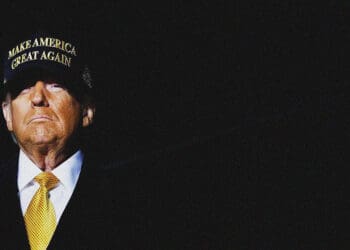Bressler, Amery & Ross attorneys Kerry Zinn and Jacqueline Aleman discuss the SEC’s recent actions in light of the 2018 Share Class Disclosure (SCD) Initiative, which encourages self-reporting for 12b-1 conflict disclosures.
with co-author Jacqueline Aleman
In February 2018, the Division of Enforcement of the U.S. Securities and Exchange Commission (SEC) launched a self-reporting initiative for investment advisers who recommended, purchased or held mutual fund share classes with 12b-1 fees for their advisory clients when a lower-cost share class for the same fund was available and they did not adequately disclose the conflict of interest to clients relating thereto. As described below, the Division of Enforcement (“SEC Enforcement”) is investigating and bringing enforcement actions for breach of fiduciary and best execution duties against investment advisers who were eligible to self-report under the initiative but who did not do so.
Background
Section 206 of the Investment Advisers Act of 1940 (“Advisers Act”) imposes a fiduciary duty on investment advisers to act in their clients’ best interests, including an affirmative duty to disclose all conflicts of interest in Form ADVs. Investment advisers also have a duty to seek best execution for client transactions. Investment advisers who breach their fiduciary duty and/or duty to seek best execution for client transactions may be sanctioned by the SEC.
Share Class Disclosure Initiative
The SEC’s 2018 Share Class Disclosure Initiative (“SCD Initiative”) encouraged investment advisers to self-report if:
- they recommended, purchased or held mutual funds with 12b-1 fees for advisory clients when lower-cost share classes were available for the same mutual funds and
- failed to adequately disclose the conflict of interest to their clients.
With regard to the SCD Initiative, SEC Enforcement indicated that 12b-1 conflict disclosures must clearly describe the conflict of interest associated with
- making investment decisions in light of the receipt of the 12b-1 fees and
- selecting the more expensive 12b-1 fee paying share class when a lower-cost share class was available for the same fund.
SEC Enforcement also cited prior enforcement actions in which 12b-1 conflict disclosures were inadequate because they stated that the investment adviser “may” receive 12b-1 fees.
The SEC’s Enforcement Division offered SCD Initiative participants favorable settlement terms for self-reporting.[1] The settlement terms consisted of a cease-and-desist order, censure, disgorgement of ill-gotten gains including prejudgment interest and undertakings, but no monetary fine. The relevant period for self-reporting purposes was January 1, 2014 through the date that the violations continued. The final deadline for self-reporting was June 12, 2018.
The notice that was issued with regard to the SCD Initiative included a stark warning from SEC Enforcement. SEC Enforcement indicated that they would recommend additional charges and impose civil penalties upon eligible investment advisers who did not participate in the SCD Initiative. SEC Enforcement also stated that eligible investment advisers who failed to self-report under the SCD Initiative could be subject to greater penalties than imposed in the past in similar cases.
The SEC has had prior self-reporting initiatives. For example, in 2014 the SEC announced a Municipal Securities Continuing Disclosure (MSCD) Cooperation Initiative. The SEC sanctioned over 72 municipal issuers who participated in the MSCD Initiative. The SEC also pursued and ultimately brought enforcement cases against other municipal issuers who did not participate in the MSCD Initiative.
Enforcement Investigation and Actions
SEC Enforcement is targeting investment advisers who were eligible but who did not participate in the SCD Initiative. Document requests were issued to at least some of those investment advisers. The document requests seek information relating to clients invested in mutual fund shares with 12b-1 fees, how much they paid in 12b-1 fees during the relevant period and the disclosures that were made to those clients about the investment adviser’s conflict of interest. For purposes of the document request, the review period for violations is January 1, 2013 to present. Notably, the review period that applied to the SDC Initiative was for violations from January 1, 2014 to present.
According to its 2018 Annual Report, the SEC brought more than 15 actions over five years relating to 12b-1 fees, failing to disclose the conflict of interest relating thereto and breach of the duty to seek best execution for clients. A number of the actions were against individuals associated with investment advisers as well as the investment adviser itself. The sanctions typically imposed by the SEC include a censure, cease-and-desist order and disgorgement of ill-gotten gains, plus prejudgment interest and monetary penalties. The civil penalties imposed on individuals have ranged from $50,000 to $300,000. Investment adviser firms have paid fines ranging from $250,000 to $2 million. Investment advisers who were eligible but who failed to participate in the SCD Initiative will likely face harsher discipline than similarly situated investment advisers who participated in the SCD Initiative.
Conclusion
The SEC continues to express significant concerns about investment advisers failing to comply with their obligation under the Advisers Act to fully disclose all material conflicts of interest relating to their mutual fund share class selection practices. The SEC appears to be ratcheting up its enforcement efforts on this issue. Investment advisers who did not participate in the SCD Initiative but were eligible to do so and who have not already been contacted by the SEC should consider being proactive in an effort to mitigate civil penalties and not just wait to receive a document request or Wells Notice from the SEC. Investment advisers should consider repaying their customers’ 12b-1 fees with interest from January 1, 2014 through the date that the violations continued. If the investment adviser plans on continuing to receive 12b-1 fees, it should review its conflict disclosures and update them to expressly disclose the conflict consistent with the guidance in the SCD Initiative notice and the enforcement actions cited therein. Investment advisers should consult with counsel if they receive a document request from SEC Enforcement seeking information about clients invested in mutual fund shares with 12b-1 fees or if they self-reported and receive a Wells Notice.
[1] In order to participate in the SCSD Initiative, the investment adviser must have: (1) directly received the fees, (2) its supervised persons received the fees or (3) its affiliated broker-dealer (or its registered representatives) received the fees.
 Jacqueline Aleman is an Associate at the law firm of Bressler, Amery & Ross. She can be reached at jaleman@bressler.com.
Jacqueline Aleman is an Associate at the law firm of Bressler, Amery & Ross. She can be reached at jaleman@bressler.com.



 Kerry Zinn is a principal at Bressler, Amery & Ross in Fort Lauderdale, Florida. Her practice focuses on regulatory enforcement matters and compliance counseling relating to anti-money laundering, anti-bribery and corruption and sanctions. Prior to joining Bressler, she was the lead attorney advising global bank UBS’ financial crime prevention program in the Americas. Before that, she was regulatory counsel for UBS’ retail broker-dealer. She has also served as one of the lead trial attorneys in the Miami office of the Securities and Exchange Commission. She can be reached at kzinn@bressler.com.
Kerry Zinn is a principal at Bressler, Amery & Ross in Fort Lauderdale, Florida. Her practice focuses on regulatory enforcement matters and compliance counseling relating to anti-money laundering, anti-bribery and corruption and sanctions. Prior to joining Bressler, she was the lead attorney advising global bank UBS’ financial crime prevention program in the Americas. Before that, she was regulatory counsel for UBS’ retail broker-dealer. She has also served as one of the lead trial attorneys in the Miami office of the Securities and Exchange Commission. She can be reached at kzinn@bressler.com. 








